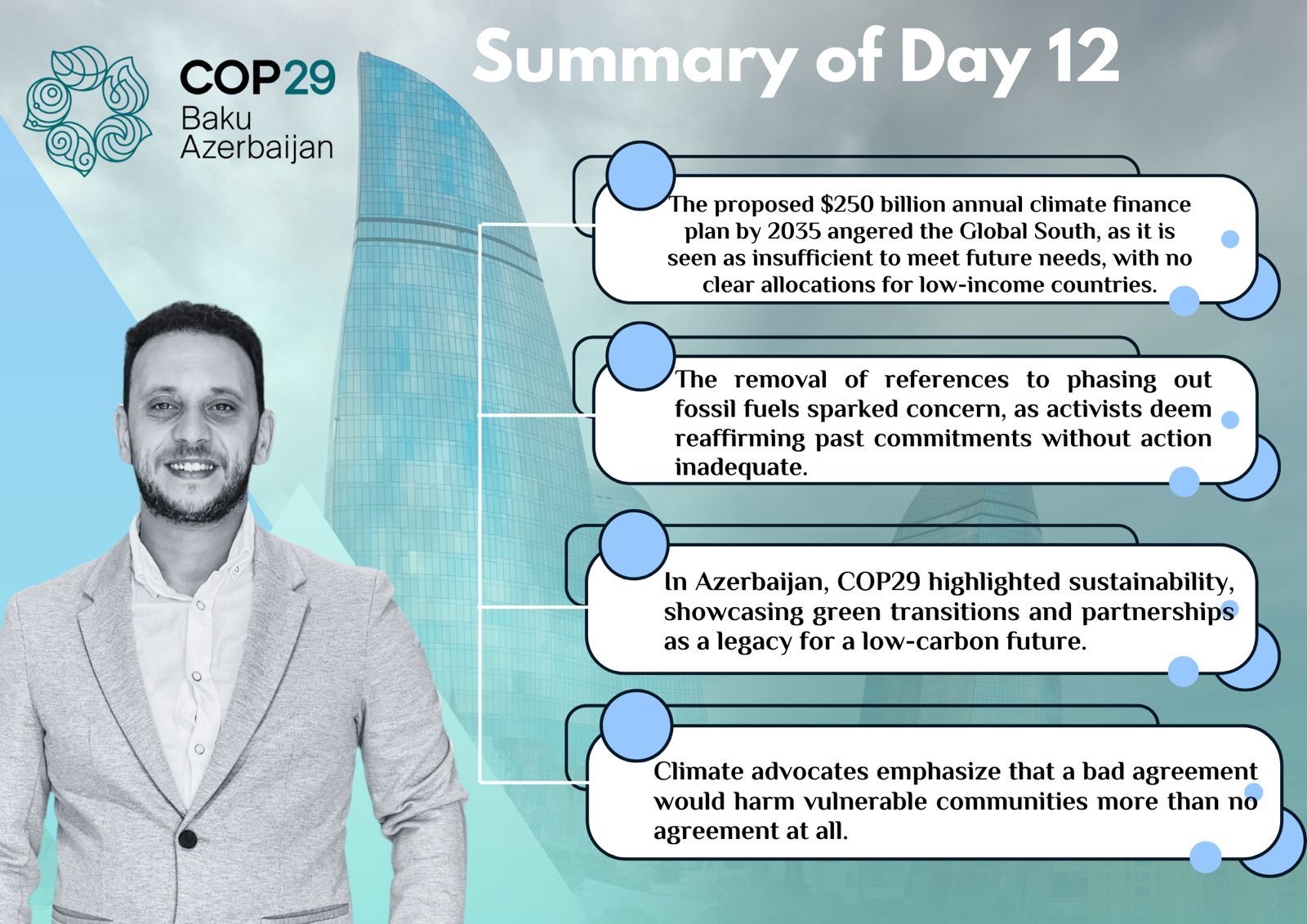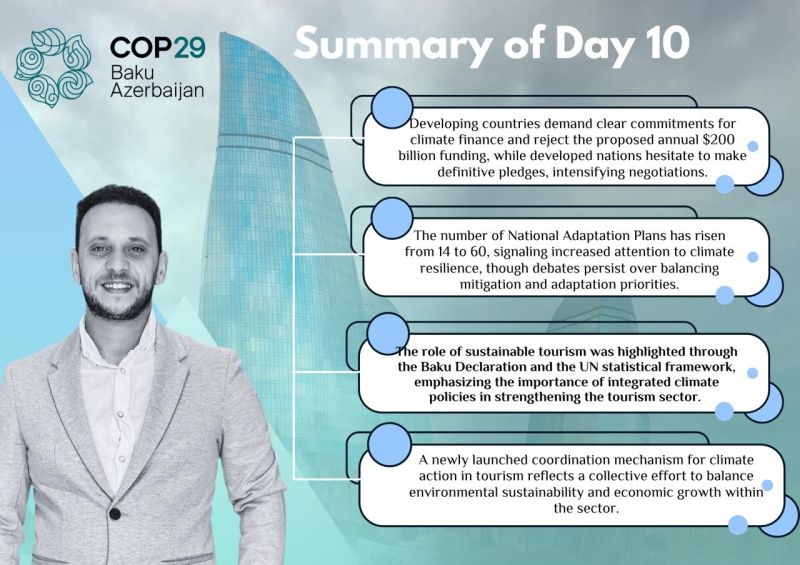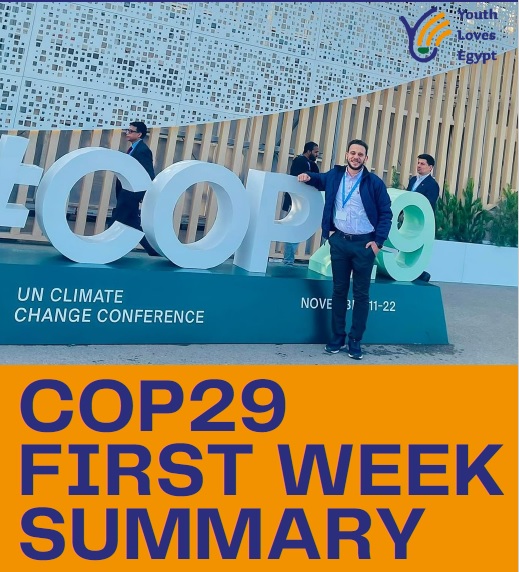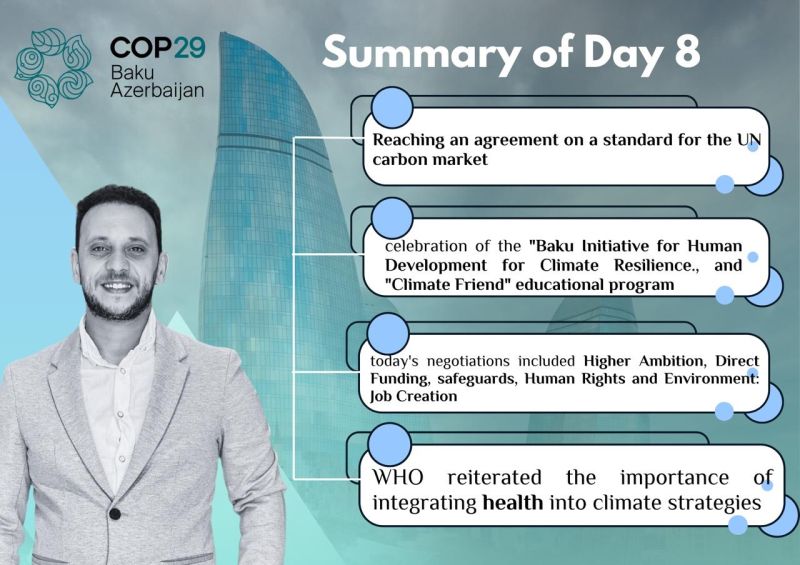Upon reflecting on the results of the COP29 conference in Baku, it is clear that despite achieving some steps there are still some critical challenges, Although not all the desired outcomes were achieved we cannot underestimate the importance of this global gathering.
There are some Examples of what was accomplished at the conference include:
The positive side of the conference results:
Enhancing renewable energy financing: We find that there has been a commitment to triple the financial flows for renewable energy in developing countries by 2030, which is a pivotal step towards transitioning to clean energy. However, this does not negate the fact that the details regarding the sources of financing and its allocation need further clarification.
Increasing adaptation funding: We cannot consider this issue entirely negative or entirely positive, but we can say that it does not match the scale of the problem we have reached; developed countries have pledged to triple adaptation funds for developing countries, which shows a step towards meeting needs, but it has not been fundamentally satisfactory for developing countries. Additionally, even the mechanisms for delivering this money need clarification and actual implementation.
Loss and Damage Fund: The long-awaited activation of the Loss and Damage Fund with initial pledges represents progress; however, sustainable financing and equitable access remain ongoing concerns.
Challenges:
The lack of an agreement to end the use of fossil fuels: COP29's failure to produce a decisive agreement on phasing out fossil fuels, along with the absence of a clear timeline and binding commitments, constitutes a significant setback.
The climate finance gap: Developed countries have not yet been able to fulfill the annual commitment of $100 billion for climate finance, let alone agree on a new climate finance goal. Additionally, there is a significant and clear difference between developed and developing countries in the amount of funding imposed, which has led the NCQG negotiations to a deadlock.
A deficit in justice and equality: Criticism is widespread regarding the insufficient focus on justice and equality in the outcomes of COP29, as developing countries, which are the least responsible for emissions, are disproportionately affected and need more support to achieve a sustainable transition.
Implementation gap: Transforming commitments into tangible actions remains a significant challenge, as strong political will, technological advancement, and robust accountability mechanisms are essential for effective implementation.
COP29 underscored the need for concrete actions in future negotiations to address implementation gaps, secure climate financing, and address vulnerable countries' concerns for a fair, sustainable future.





